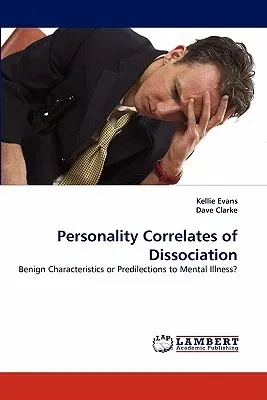Kellie Evans
(Author)Personality Correlates of DissociationPaperback, 19 January 2011

Qty
1
Turbo
Ships in 2 - 3 days
In Stock
Free Delivery
Cash on Delivery
15 Days
Free Returns
Secure Checkout
Print Length
136 pages
Language
English
Publisher
LAP Lambert Academic Publishing
Date Published
19 Jan 2011
ISBN-10
3843390738
ISBN-13
9783843390736
Description
Product Details
Authors:
Book Format:
Paperback
Country of Origin:
US
Date Published:
19 January 2011
Dimensions:
22.86 x
15.24 x
0.81 cm
ISBN-10:
3843390738
ISBN-13:
9783843390736
Language:
English
Location:
Saarbrucken
Pages:
136
Publisher:
Weight:
208.65 gm

